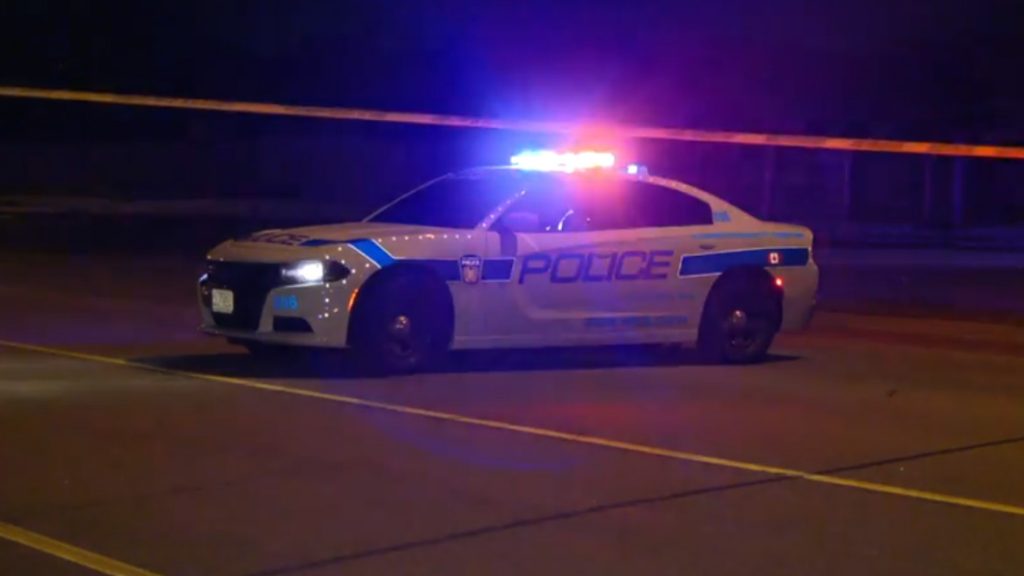A woman has died in what police believe is a hit-and-run collision in Mississauga.
Police were called to Tomken Road and Meyerside Drive around 7:45 p.m. after a woman was located in the roadway by a motorist.
The motorist stopped and was able to move her out of the street.
She was rushed to hospital where she was pronounced dead.
Police are treating the incident as a hit-and-run collision at this point, but it is still unknown whether her injuries were caused by a vehicle.
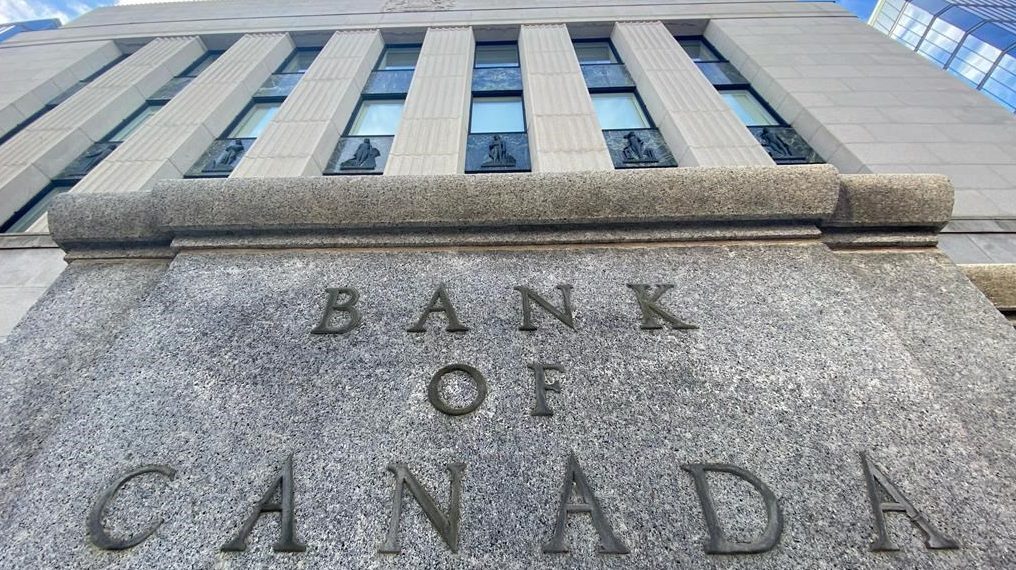
The Bank of Canada will deliver an interest rate announcement Wednesday with observers watching if news about vaccines gives a shot in the arm to the bank’s outlook on the economy.
The central bank’s most recent economic forecasts were based on having a vaccine becoming widely available in 2022, not by next year as now appears the case.
RELATED: Canadian economy added 62,000 jobs in November, unemployment rate fell to 8.5%
The timing of a vaccine could change the course of an economic recovery that the central bank has warned could be long and bumpy.
The Bank of Canada’s key policy rate is expected stay at its rock-bottom level of 0.25 per cent. Governor Tiff Macklem has said no rate cut is planned until the economy fully recovers and inflation gets back to the bank’s two per cent target.
Today will also mark a change in the upper echelons of the bank’s leadership, as senior deputy governor Carolyn Wilkins departs after a nearly 20-year career at the Bank of Canada.
The bank’s board of directors has launched a search process to find her successor as the bank’s second-in-command.
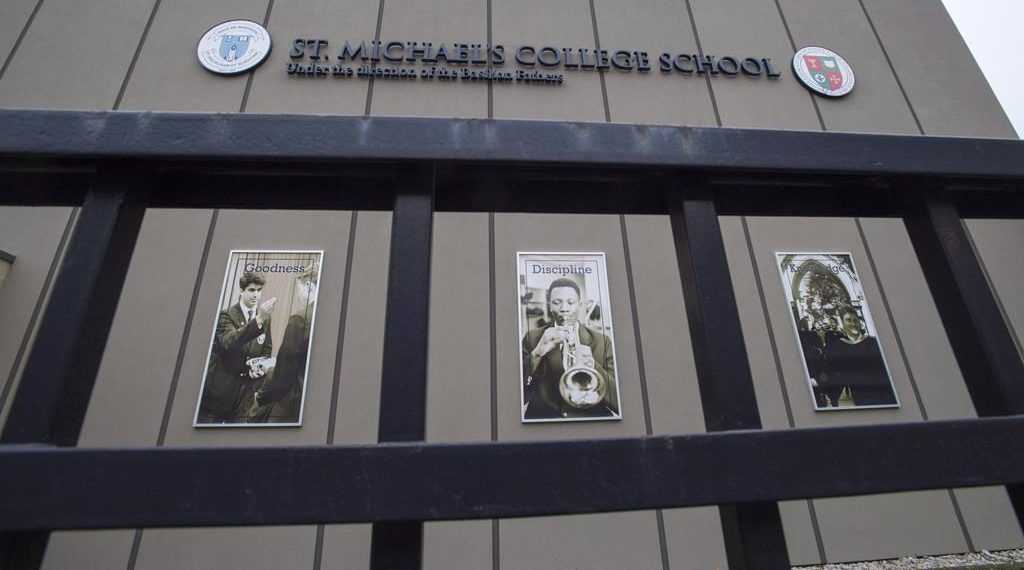
An Ontario court will hear more testimony today in the case of a teen boy accused of sexually assaulting two fellow students at a prestigious Toronto private school.
The teen has pleaded not guilty to two counts each of gang sexual assault, sexual assault with a weapon and assault with a weapon related to two incidents at St. Michael’s College School in the fall of 2018.
Last week, court viewed two videos in which a teen complainant described the incidents to a police investigator.
In one of the recordings, the teen recalled being sexually assaulted with a broom handle by a group of students in the school’s locker room in October 2018.
In the other, he recounted witnessing a similar sexual assault on another student in the same locker room roughly a month later.
He did not mention the accused teen in connection with the first incident, but alleged the accused held back the arms of the victim in the second.
The teen who testified was initially among those charged in the November 2018 incident, but the charges against him were dropped.
Court has heard there were two sexual assaults at the high school in 2018 when boys involved with a football team held down two different victims and sexually assaulted them with a broom handle in the locker room.
Three teens have already pleaded guilty to sexual assault with a weapon and assault with a weapon for their roles in the incidents and have been sentenced to two years of probation.
One of them also pleaded guilty to making child pornography for recording one of the sex assaults in a video that was then shared within the school and beyond.
Another student received a two-year probationary sentence with no jail time after pleading guilty. The charges against another student, aside from the one who testified, were dropped
None of the minors involved in the case – including the accused, the complainants and some witnesses – can be identified under provisions of the Youth Criminal Justice Act.
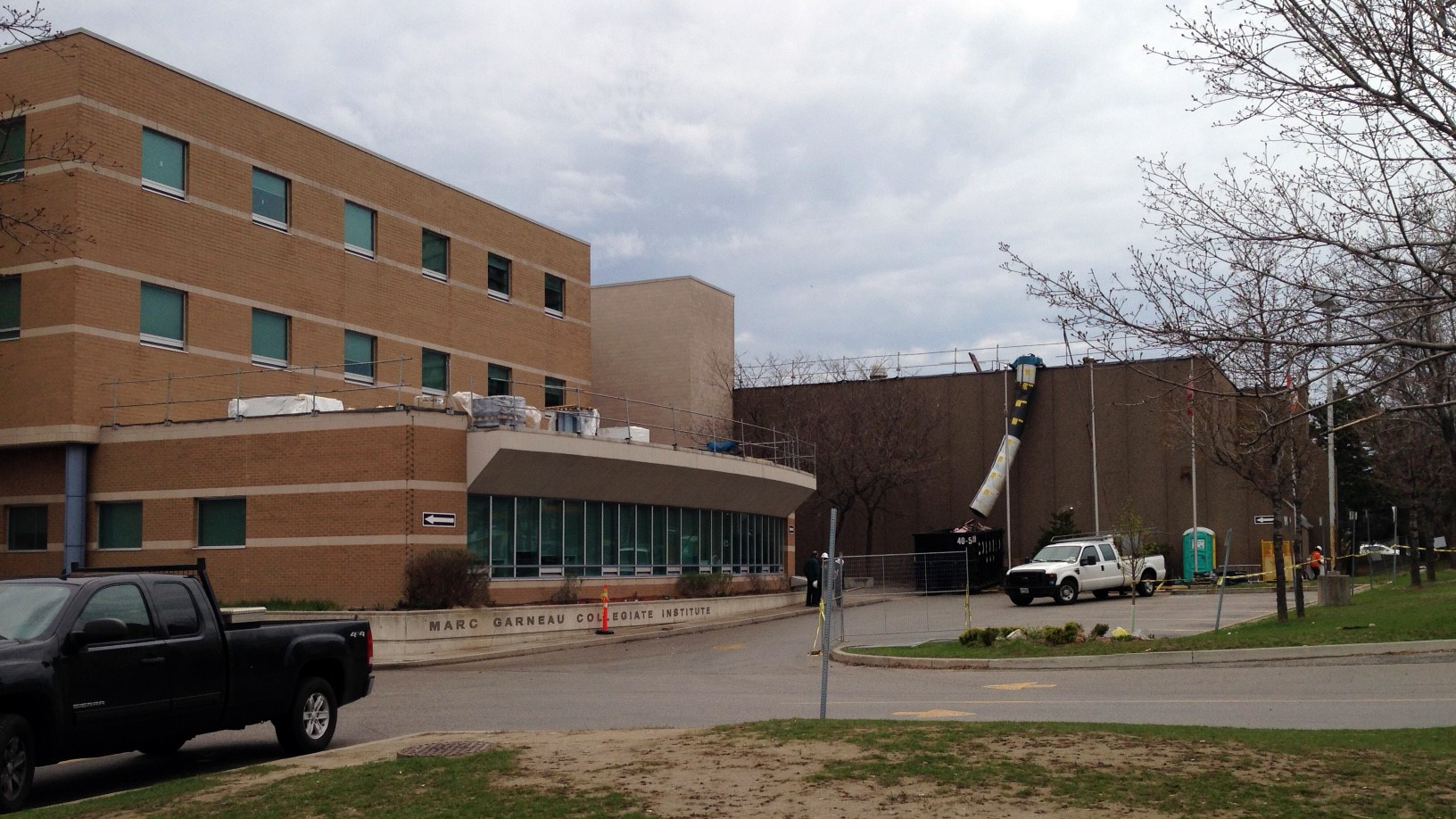
The Toronto District School Board has announced Marc Garneau Collegiate Institute in North York will be closed until at least Dec. 18 due to COVID-19 cases.
Toronto Public Health advised the school board to dismiss students and staff in order to finish up an investigation into the outbreak and conduct additional COVID-19 testing
According to the TDSB spokesperson Ryan Bird, there are currently 14 student cases of COVID-19 right now. Bird says the school was set to undergo school-wide asymptomatic testing on Thursday, but that will be rescheduled due to the closure.
Bird said part of the ongoing TPH investigation is looking at the 14 positive cases, but also encouraging more students and staff to get tested in the next few days.
“What they are looking at essentially is, ‘How is this being transmitted? Is it being transmitted through the school?’,” said Bird. “That’s a key part in why all school and staff have been dismissed if they don’t yet know how it’s being transmitted.”
There are two other schools in the TDSB that have closed due to COVID-19 cases. Thorncliffe Park Public School has reported 29 cases of COVID-19 among students and two among staff. A total of 17 are considered resolved.
The school was closed last Thursday after three staff members refused to work due to COVID-19 concerns.
Testing of asymptomatic students and staff at the school over two days led to the discovery of 19 positive cases of COVID-19 and 18 classes were placed in self-isolation.
Fraser Mustard Early Learning Academy has reported seven cases of COVID-19 amongst students. One is considered resolved.
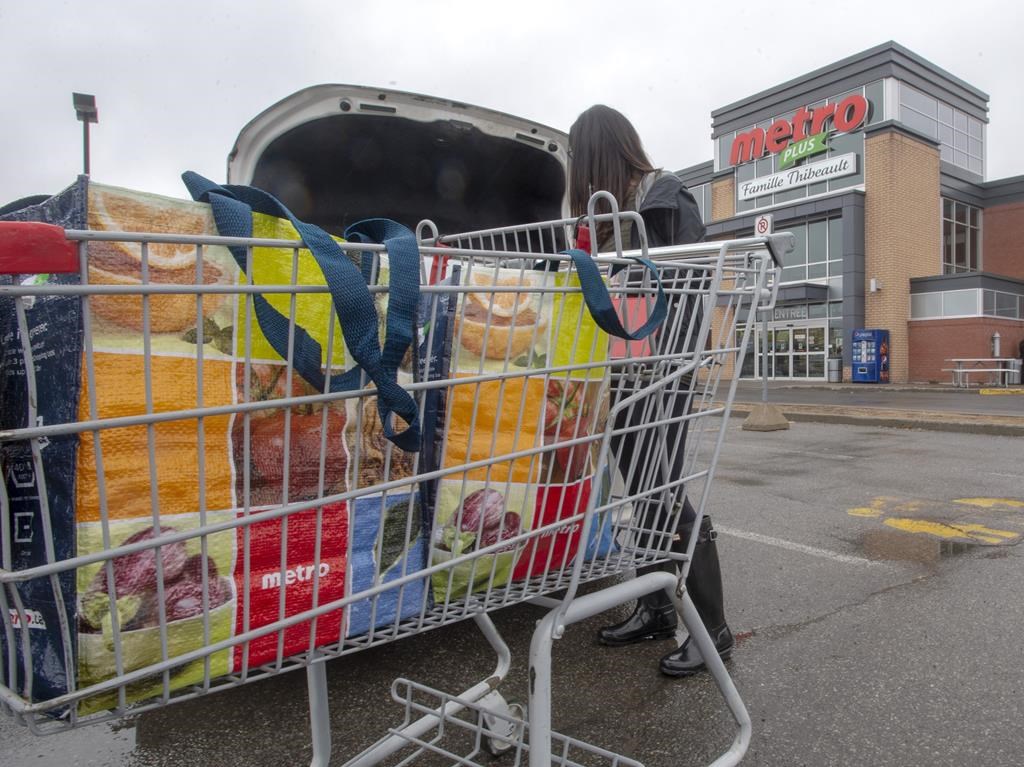
The average Canadian family will pay up to an extra $695 for food next year, as the pandemic, wildfires and changing consumer habits drive up grocery bills to the highest increase ever predicted by an annual food price report.
Rising bread, meat and vegetable prices are expected to lead the overall food price increase of three to five per cent, according to Canada’s Food Price Report 2021 released Tuesday.
For an average family of four, that means a $13,907 grocery bill.
“We don’t expect a break at the grocery store any time soon,” said Sylvain Charlebois, lead author and Dalhousie University professor of food distribution and policy.
“This is the highest increase that we’ve ever expected.”
The 11th edition of the food price report, published annually by Dalhousie University and the University of Guelph, has expanded this year to include the University of Saskatchewan and the University of British Columbia, making it more national in scope.
“Vegetables are where people are going to notice the greatest impact”
Researchers said in the study that COVID-19 will continue impacting food prices next year, with the meat industry particularly vulnerable to potential labour shortages, logistics disruptions, food plant and distribution centre slowdowns and shifts in consumer demand.
While meat prices could increase as much as 6.5 per cent overall, the biggest price hike could be for poultry, a supply managed industry in Canada.
Poultry prices are up seven per cent since July, Charlebois said, adding that as production costs continue to rise, so will retail prices.
“We are expecting poultry prices to be a bit of an issue,” he said. “If farmers are asked to spend more on equipment and COVID-19 cleaning protocols, consumers will eventually have to pay more.”
Meanwhile, climate change, including heat waves, ice loss, wildfires, floods and droughts, will also influence how much we pay for groceries next year.
Vegetables could be particularly hard hit, with prices expected to jump as much as 6.5 per cent, according to the report.
Much of the produce Canadians consume comes from California, a state that has been ravaged by one of the worst wildfire seasons on record.
With California’s crops heavily compromised by smoke and ongoing challenges with COVID-19, Stuart Smyth with the University of Saskatchewan said prices will be pushed up.
“Vegetables are where people are going to notice the greatest impact,” said Smyth, associate professor in the Department of Agricultural and Resource Economics.
While the price of root crops like potatoes and carrots should remain stable, he said leafy greens and more perishable produce like tomatoes and cucumbers will be more expensive.
Yet some of the biggest price increases could be for vegetables like cabbage, cauliflower and asparagus, said Smyth, the chair of Agri-Food Innovation and Sustainability Enhancement.
Meanwhile, the study warned consumers to expect bakery prices to increase as much as 5.5 per cent.
The cost of a bushel of wheat hit about $6 in November, Smyth said, up from about $4 roughly 18 months ago — a 50 per cent increase.
The issue is about supply and demand, he said, noting that while “wheat acres” or the amount produced has remained relatively stable in Canada, demand has steadily risen.
“If we hold supply constant but the demand goes up, essentially we’re falling a little bit behind,” Smyth said.
Meanwhile, the latest report has broken down average food costs for individuals based on age and gender, allowing consumers to estimate their potential food expenditures based on their own situation.
While it continues to provide the estimated cost of feeding a family of four, the report also shows that a man aged 31 to 50 can expect to pay $169 more for food next year, while a woman of the same age can expect to pay $152 more.
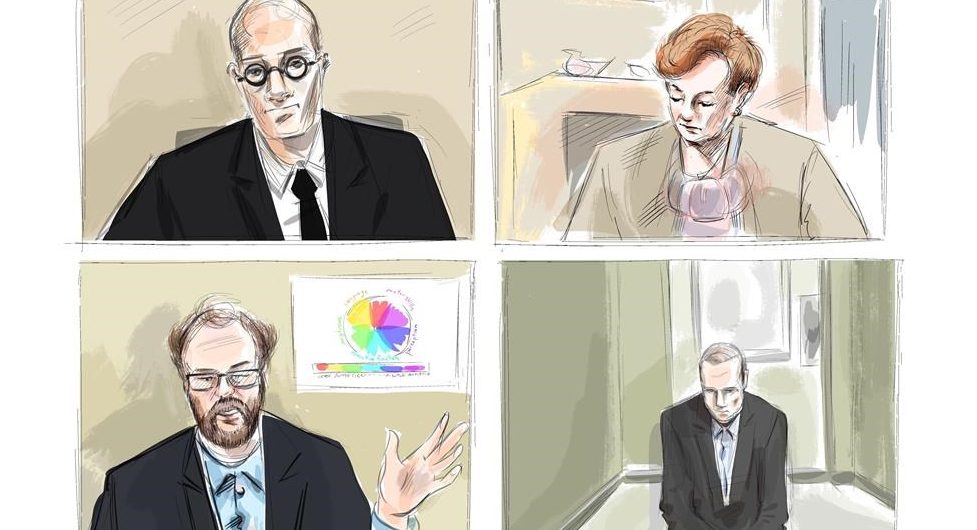
A psychiatrist retained by the defence is set to testify for the seventh straight day at the trial for the man who killed 10 people on a Toronto sidewalk with a rental van.
CityNews reporter Adrian Ghobrial is covering the trial, follow his tweets below:
Dr. Alexander Westphal is nearing completion of his testimony in the trial of Alek Minassian, who has pleaded not guilty to 10 counts of first-degree murder and 16 of attempted murder.
The defence argues the 28-year-old should be found not criminally responsible for his actions on April 23, 2018, due to autism spectrum disorder.
Westphal has said Minassian lacks empathy and does not understand the moral wrongfulness of killing 10 people, but said a finding of criminal responsibility is a legal matter rather than a psychiatric one.
On Monday, the court heard that Minassian would tell his victims he committed the attack because he was lonely and angry at society. He gave that explanation to Westphal in one of the pair’s numerous meetings in 2019 and earlier this year.
But Westphal said Minassian was just saying what he thought victims would want to hear.
Crown attorney Joe Callaghan said that Minassian’s comments on what he would tell his victims demonstrated his ability to view the perspective of those he attacked.
Westphal, as he has much of the past several days of cross-examination, disagreed with Callaghan.
The psychiatrist has previously testified that due to his autism spectrum disorder, Minassian does not have the ability to take the perspective of others.
In his report on Minassian that was submitted to the court, Westphal concluded the man was not psychotic at the time, but had “an autistic way of thinking that was severely distorted in a way similar to psychosis.
Court also heard Monday that Minassian had thought about abandoning the attack right up until the moment he stopped at a red light across the street from his first group of victims.
Minassian has admitted to planning and carrying out the attack, which leaves his state of mind at the time the sole issue at trial.
Another psychiatrist previously testified Minassian does not meet the test to be found not criminally responsible.

A Toronto police officer sentenced to jail in the assault of a young Black man will make his first appearance at the police tribunal today.
Const. Michael Theriault was sentenced to nine months in jail last month for beating Dafonte Miller in Whitby, Ont., in December 2016.
He now faces a disciplinary hearing before the Toronto Police Service Tribunal.
Theriault has been suspended without pay since the sentence was issued on Nov. 5, after being suspended with pay since his arrest.
Prosecutors alleged during the trial that Theriault and his brother beat Miller with a metal pipe, rupturing his eye among other injuries.
Ontario Superior Court Justice Joseph Di Luca said Theriault’s crime further degraded the Black community’s trust in the police.
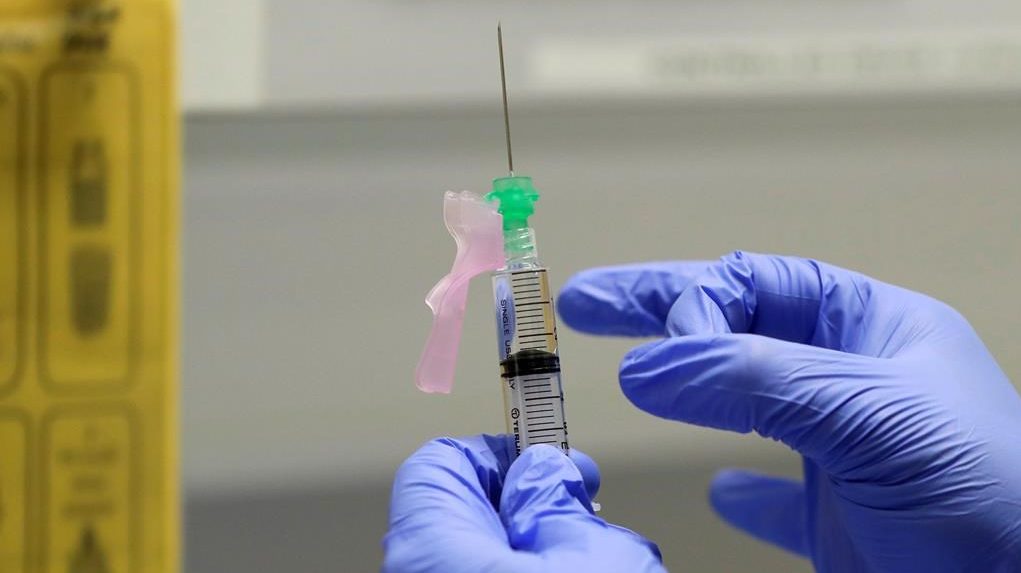
U.K. health authorities are rolling out the first doses of a widely tested and independently reviewed COVID-19 vaccine, starting a global immunization program that is expected to gain momentum as more serums win approval.
The first shot will come Tuesday at one of a network of hospital hubs around the country where the initial phase of the U.K. program will be rolled out on what has been dubbed “V-Day.”
Public health officials are asking the public to be patient because only those who are most at risk from COVID-19 will be vaccinated in the early stages. Medical staff will contact patients to arrange appointments, and most will have to wait until next year before there is enough vaccine to expand the program.
“I think there’s every chance that we will look back on … (Tuesday) as marking a decisive turning point in the battle against coronavirus,” said Simon Stevens, the CEO of England’s National Health Service.
The first 800,000 doses are going to people over 80 who are either hospitalized or already have outpatient appointments scheduled, along with nursing home workers. Others will have to wait their turn.
Among those older Britons scheduled to get vaccinated is Hari Shukla of Newcastle.
“When I received the telephone call, I was very excited I got the opportunity of joining in and taking part in that,? he said. “So we are very very pleased and happy and excited as well.?
Buckingham Palace refused to comment on reports that Queen Elizabeth II, 94, and her 99-year-old husband, Prince Philip, would be vaccinated as a public example of its safety.
“Our goal is totally to protect every member of the population, Her Majesty, of course, as well,” Dr. June Raine, chief executive of Britain’s Medicines and Healthcare products Regulatory Agency, told the BBC.
Public health officials elsewhere are watching Britain’s rollout as they prepare for the unprecedented task of vaccinating billions of people to end a pandemic that has killed more than 1.5 million. While the U.K. has a well-developed infrastructure for delivering vaccines, it is geared to administer them to groups such as school children or pregnant women, not the whole population.
The U.K. is getting a head start on the project after British regulators on Dec. 2 gave emergency authorization to the vaccine produced by U.S. drugmaker Pfizer and Germany’s BioNTech. U.S. and European Union authorities are also reviewing the vaccine, alongside rival products developed by U.S. biotechnology company Moderna, and a collaboration between Oxford University and drugmaker AstraZeneca.
On Saturday, Russia began vaccinating thousands of doctors, teachers and others at dozens of centres in Moscow with its Sputnik V vaccine. That program is being viewed differently because Russia authorized use of Sputnik V last summer after it was tested in only a few dozen people.
The first shipments of the Pfizer-BioNTech vaccine were delivered to a selected group of U.K. hospitals on Sunday.
At one of those facilities, Croydon University Hospital, south of London, staff members couldn’t so much as touch the vials, but they were thrilled to just have them in the building.
“I’m so proud,” said Louise Coughlan, joint chief pharmacist at Croydon Health Services NHS Trust.
The vaccine can’t arrive soon enough for the U.K., which has more than 61,000 COVID-19 related deaths — more than any other country has reported in Europe. The U.K. has more than 1.7 million cases.
The 800,000 doses are only a fraction of what is needed. The government is targeting more than 25 million people, or about 40% of the population, in the first phase of its vaccination program, which gives first priority to those who are highest risk from the disease.
After those over 80 and nursing home workers, the program will be expanded as the supply increases, with the vaccine offered roughly on the basis of age groups, starting with the oldest people.
In England, the vaccine will be delivered at 50 hospital hubs in the first wave of the program, with more hospitals expected to offer it as the rollout ramps up. Northern Ireland, Scotland and Wales are making their own plans under the U.K.’s system of devolved administration.
Logistical issues are slowing the distribution of the Pfizer vaccine because it has to be stored at minus-70 degrees Celsius (minus-94 degrees Fahrenheit).
The immunization program will be a “marathon not a sprint,” said professor Stephen Powis, medical director for NHS England.
Authorities also are focusing on large-scale distribution points because each package of vaccine contains 975 doses and they don’t want any to be wasted.
The U.K. has agreed to buy millions of doses from seven different producers. Governments around the world are making agreements with multiple developers to ensure they lock in delivery of the products that are ultimately approved for widespread use.

Toronto police say they have charged a man with second-degree murder following an alleged assault in the city’s Bloordale Village neighbourhood.
On Dec. 5th at around 4 a.m. police said they were called to the Dufferin Street and Bloor Street West area for a report of a dispute between two men.
Investigators allege an argument turned into a fight, resulting in a man being knocked unconscious.
The man was taken to the hospital in critical condition.
Police arrested 30-year-old Toronto resident Marlon Davis at the scene and charged him with aggravated assault.
On Sunday, police said they charged Davis with second-degree murder.
Davis is scheduled to appear in court on Monday.
This is the city’s 67th homicide of the year, police said.
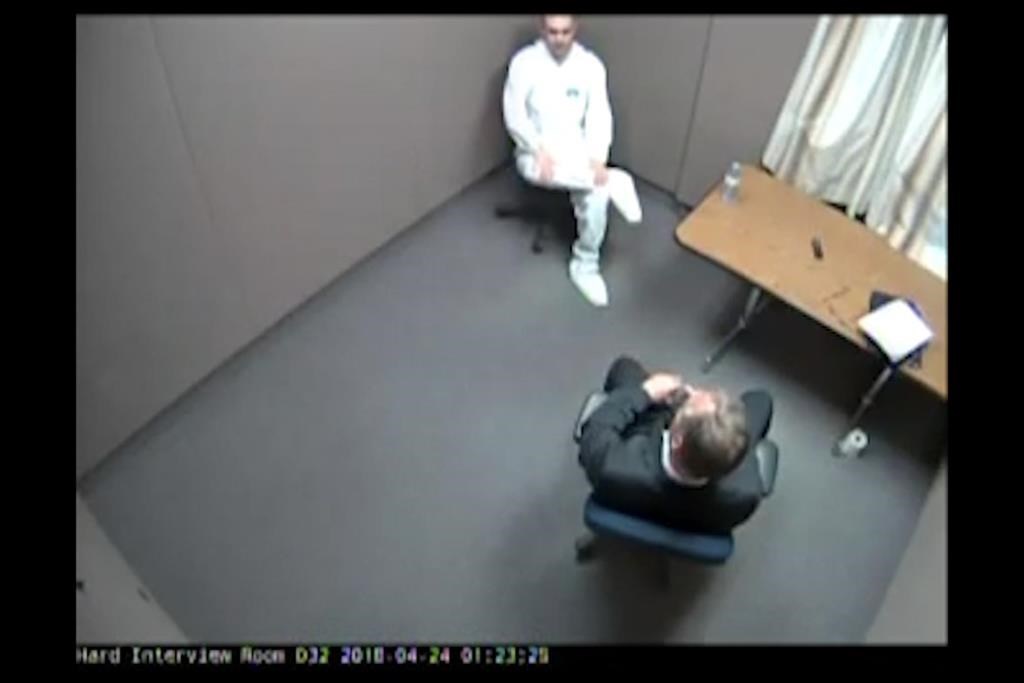
A psychiatrist retained by the defence will testify for a sixth straight day at the trial for the man who killed 10 people while driving a van down a Toronto sidewalk.
Dr. Alexander Westphal has said Alek Minassian lacks empathy and does not understand the moral wrongfulness of killing 10 people, but said a finding of criminal responsibility is a legal matter rather than a psychiatric one.
Minassian has told Westphal he knew what he did was morally wrong, but the psychiatrist did not include that statement in his final report.
Minassian has pleaded not guilty to 10 counts of first-degree murder and 16 counts of attempted murder.
The defence argues he should be found not criminally responsible due to autism spectrum disorder.
Minassian has admitted to planning and carrying out the attack, which leaves his state of mind at the time the sole issue at trial.
The prosecution will enter the third day of a tense cross-examination of Westphal.
